Even veteran campaign insiders and presidential historians agree that the 2016 election cycle spun on an axis unlike any other. Now many of us are trying to find the best way forward.
So in our search for insights, we at Chapman Magazine called on the experts we trust most: those in the Chapman University faculty and among our alumni. How are they helping students, friends, colleagues and clients make sense of it all? What are the opportunities, and the biggest concerns? Perhaps above all else, how can we as citizens take steps to bridge the cavernous cultural and political divides that seem to have hijacked our democracy?
Here we excerpt interviews with everyone from social scientists to social media specialists, journalists to futurists:
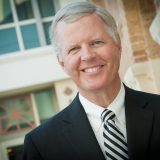
“I’m careful not to bring my political views into class. That said, I’m fascinated at the breakup of the Republican coalition. President Trump’s views on trade are contrary to traditional views; his willingness to support federal assistance for business goes against traditional views; his proposals for maintaining a protectionist policy in international trade haven’t been the position of the Republican Party since William McKinley. On international matters, he departs from traditional Republican support for NATO. So on a huge number of issues – deep philosophical issues – the Republican Party has a leader who departs from the past.”
(On political divisions)
“They are only getting wider. I believe it’s highly unlikely any Democrat in Congress will vote for a substitute to the Affordable Care Act, which passed without a single Republican vote. These are equally troubling. It’s a feeling of, ‘When we get in, we’ll treat them the way they treated us,’ rather than, ‘We’ll treat them the way we would have liked to be treated.’ We’re in for a long slog.”
(On international relations)
“I worry now that there is an increased risk in the area of international relations, particularly with regard to Iran, North Korea, Russia, and with China in the South China Sea. None of these issues were paramount in the campaign, and as a result I can’t predict what President Trump’s reactions are likely to be in the case of provocation.”
Tom Campbell, JD, Ph.D., is a professor and former dean of the Fowler School of Law. Campbell previously served five terms as a Republican in the U.S. House of Representatives.
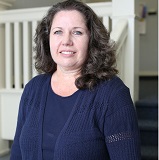
“In some ways each party got what it deserved. The Democrats ignored what was going on with the Bernie Sanders movement and made sure Hillary Clinton was going to get the nomination. The Republicans never took Donald Trump seriously. There was record-low approval and record negativity for both sides. A lot of people underestimated that anger in the American electorate, particularly in the working-class voters in the Rust Belt states.”
(On teaching)
“About half my students were happy and the other half despondent. I reminded everyone that we have three coequal branches of government. And we have a Constitution that has persevered, and the president is not all powerful. If you’re afraid he’ll do all he promised, remember the Constitution won’t allow it. If you’re hoping he’ll do all he promised, the Constitution won’t allow it.”
(On accountability)
“We need to force every elected official to be accountable and talk about the issues. We all know that Hillary Clinton knew the issues. But the Democrats made a tactical error. They dug in their heels and decided they were going to talk about Trump. We also have way too many polls, and the news media report on these polls like they’re way more important than they are. They’re really just momentary snapshots. Maybe we need to move away from some of that. I understand why it’s part of the narrative, but I’m not sure it’s helpful for voters.”
Lori Cox Han, Ph.D., is a political science professor and author of several books on the presidency, most recently In It to Win: Electing Madam President. This spring Oxford University Press will publish Women, Power, and Politics: The Fight for Gender Equality in the United States, co-authored by Han.
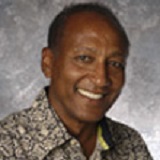
“We learned that life is about making two steps forward and then a step backward and then another two steps forward. It’s circular cumulative progress. You go forward, but you’re going in circles, too. There’s always a reaction. It doesn’t mean that a lot of progress hasn’t been made.”
Tekle Woldemikael, Ph.D., is professor of sociology whose research and teaching focus on immigrant and refugee experience, racial identity, ethnicity and nationalism.
“Typically, the clinic would help about six clients and their entire families each year, so we’re talking about a couple of dozen clients who are eligible for immigration benefits but who we’re just not going to help because we think it would be dangerous for them. We’re very wary about giving clients’ information to Homeland Security. We’re not sure at this point that we can take any case.
Big picture, people need to be more active and involved. We have such low voter turnout, I think, because people are very complacent. And what we should have learned from this is that we can’t be complacent. Everyone who’s eligible needs to participate in this democracy. Even more so now, it’s a responsibility, not just a privilege. Because some real core values about that democracy are at risk.”
Fowler Law Professor Marisa Cianciarulo, JD, specializes in clinical teaching and immigration law. She is the director of Chapman’s Family Protection Clinic.

“For those who think that politics is just a cycle, that things are stacked against you if you want to get involved and try to make a difference, I can say that if you contribute the passion and the drive, you can do it. There were so many forces (against the Trump campaign) – the bigger media, the bigger politicians. This campaign was driven by a giant grassroots movement. A lot of my friends didn’t see that or hear about it, but the Michigan campaign was fueled by the hard-working union worker, by the large Middle Eastern population there, including Muslims. This was truly an aspirational experience.”
Tim Lineberger ’11 (JD ’18) was communications director for the Trump campaign in Michigan.
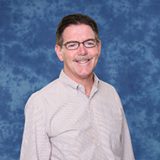
“It becomes clearer that our politics are a problem now. We seem to lack conservatives. How do you do American politics without conservatives? Now a lot of people will say, wait, we have lots of conservatives, but I argue, not in the classic sense. Not like, say, Bob Dole, or going back to Alexander Hamilton – people who don’t think government is an evil thing, they just disagree with liberals about goals and how to get there. My argument is that we have liberals, and they have moved slightly to the left. But people on the right – they aren’t fascists, but they aren’t traditional conservatives. I call them illiberal. It’s really hard for Democrats and liberals to work with those who are illiberal. Now we are a lot like other countries.”
Kevin O’Leary is a faculty member in the Department of Political Science. A journalist who has been a reporter for the Los Angeles Times and a contributing writer for Time, O’Leary is also the author of Saving Democracy and the forthcoming book The New Authoritarian Threat: And What to Do About It.
“Most of the (undocumented) students we’re working with are so high-achieving and resilient. Those are the kinds of students we want and that employers want. It seems illogical to me that we would turn them away. In many ways they have fewer opportunities than international students.”
Jerry Price, Ph.D., vice president for student affairs and dean of students, editor of the sourcebook Understanding and Supporting Undocumented Students

(On teaching)
“It’s become open season on professors and experts and those who claim to have tested and data-backed solutions. And so what I’ve been doing is encouraging students even more fervently to hold fast to those things that are demonstrably true, regardless of ideology, and to respect the public conversation. I think this experience is going to cause the faculty of Chapman University and universities everywhere to go deeper into their profession as educators like never before.
Because we’re not just teaching subjects. We’re teaching core values – the scientific method, fact-based assertions, reasonable discourse and respect for one’s ideological viewpoints.”
Tom Zoellner is an associate professor of English and the author of five nonfiction books. He is politics editor of the Los Angeles Review of Books.
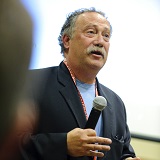
“I’ve been looking at millennial trends a great deal. Millennials do tend to the left, but white millennials went for Trump. He did better than (Mitt) Romney but lost big among minorities – about 40 percent of the generation. The key is will they change? Boomers and older Xers are pretty conservative, more than before. What we don’t know is how millennials will vote when they are mostly in their 30s, starting in 2018, and then their 40s. Will trying to buy a home, earn a living and pay taxes impact them like other generations? We don’t know yet.
The Republicans need to sell a message of growth and upward mobility to minorities and millennials. If they don’t, it’s game over within a decade. The Democrats have to prove that they want economic growth and a return to upward mobility, particularly for the working- and middle-class Anglos.”
Joel Kotkin is the Presidential Fellow in Urban Futures and holds the R. Hobbs Professorship in Urban Studies. He is executive editor of the widely read website www.newgeography.com and writes the weekly “New Geographer” column for Forbes.com.

“If you choose to block everyone who is not of your opinion, you confirm your own leanings and nothing else. Social media also has a role in aiding premature jumps to conclusions based on headlines and abstracts. Research on brain plasticity indicates that if you continue to just scan the surface of news flows, you never achieve your brain’s full cognitive abilities. One thing you can do is break out of your comfort zone. Commit to developing a more multifaceted news feed. Consider using one social network for communication with your 15 closest friends, and another for broadening your outlook. There’s nothing wrong with communicating regularly with close friends, but it’s not good at introducing novelty of perspectives into your life.”
Niklas Myhr, Ph.D., is an assistant professor in the Argyros School of Business and Economics, teaching classes in social media and digital and global marketing.
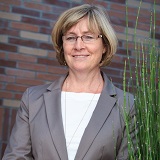
“I’m looking at the speech we use– at both our words and actions. I think this is an important time to draw on the depth of our spiritual and religious traditions. Most of our religions have prayer practices and scripture readings that can help with renewal and the strength to move forward.
For Buddhists, it’s Right Speech; for Christians, it may be Ephesians: ‘that your words may give grace to those who hear.’ It doesn’t mean that you back down on your principles, but you model a different way of speech and a different way of action that is caring and compassionate. I’m encouraged to see that there are some amazing statements coming out of churches, synagogues, mosques, universities. We’re seeing glimpses of that grace. I’m encouraged by the number of people who are willing to say that they stand for freedom and welcoming the stranger, not in a nasty or partisan way but as the truth. I’m watching for those acts of courage, those coalitions that counter the kind of virulent language and hatred we hear.”
The Rev. Gail Stearns, Ph.D., is the Irvin C. and Edy Chapman Dean of the Wallace All Faiths Chapel
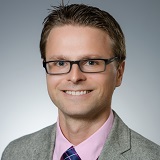
“I do think the Affordable Care Act (ACA) needs some tweaking and adjusting. Once the ACA was passed there was zero tweaking. But if everybody’s hands are tied because nobody’s working together, you’re stuck with the original plan, even if it’s not perfect. My hope is that they’ll realize the original plan shouldn’t be dumped and they’ll repackage it and call it something new so they can all pat themselves on the back with it.
The opposition used to always highlight that it’s a 900-page-plus document. And that’s a fair point. It’s a very complex law. When you come out with a complex law that’s focused on insurance reform, you’re not going to get it right the first time. Finding ways to revamp it while keeping the heart of it would be ideal.”
Daniel Tomaszewski, Pharm. D., Ph.D., is an assistant professor of pharmacy administration and health policy at the Chapman School of Pharmacy.
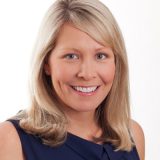
“One of the things the election of President Obama taught us eight years ago was about the effective use of data– of tracking segmentation of voting blocs. If you turn out these segments in high enough numbers, you can succeed. I think this election taught us that you still need to have a message that moves people. It can be a really shallow message – something like ‘Make America Great Again’– but if you don’t have a message, it’s hard for voters to follow.
It’s also clear that we who have positions as advocates and those who are supporting candidates in the complex world of politics, we have to be more creative. This is such a different environment, and organizations are trying to figure out how not to alienate Democrats, not anger Trump supporters and still effect change.”
(On the future)
“We need a renewed commitment to intellectual curiosity and a healthy appreciation for depth and nuance. I still always approach any negotiation with facts and assume that others are there on good faith. So I’m not scarred by this election, not thinking that everyone else is evil and no one is telling the truth. The majority of folks here (in Washington) want to help people have easier lives, better lives, and that is what makes America superb.”
Katie Vlietstra Wonnenberg ’03 is vice president for government relations and public affairs at the National Association for the Self-Employed. She’s also a past president of Women Under Forty, a bipartisan political action committee that seeks to recruit young women to run for office.





Add comment